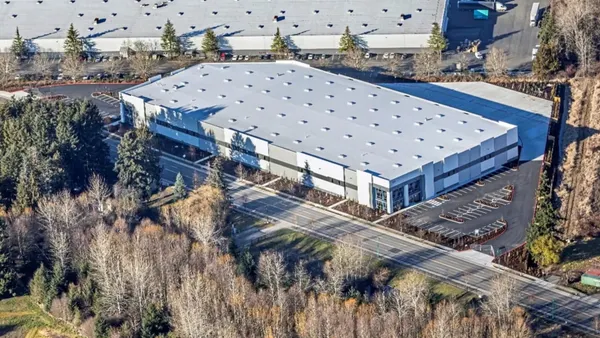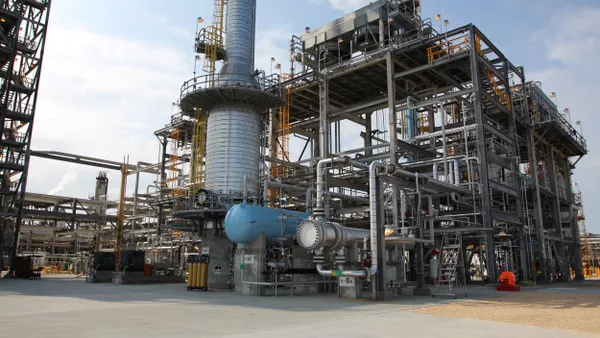The pandemic demonstrated how a company’s procurement capability directly relates to broader supply chain resiliency. As global businesses dig out of the disruptive effects of COVID-19, supply chain professionals need to identify vulnerabilities and build resiliency into their supply networks.
Finding the vulnerabilities within a supply chain requires an understanding of all supply chain-related functions. Given the numerous highly specialized roles across supply chain management, not all supply chain professionals gain experience in purchasing, sourcing, materials management, supplier relationship management and other critical procurement functions.
Building basic procurement proficiencies among entry-level supply chain professionals and those with less procurement experience in their current supply chain roles— as well as leaders in ancillary areas of the business — can help build a more resilient supply chain.
Breaking Down Silos
Procurement plays a significant role in supply chain resiliency. Procurement professionals handle supplier relationships and source the materials and components that make production possible.
“Procurement’s role in resiliency has been elevated as a result of the pandemic,” said Chris Sawchuk, principal and global procurement advisory practice leader at The Hackett Group. “It really shined a light on the vulnerabilities and capabilities of organizations. Now you see a lot of investment in supply risk. We run an annual study that showed supply risk management was the number two priority this year, when over 15 years it’s never been in the top five.”
Resilient procurement requires staff with the ability to develop sourcing strategies that incorporate risk factors. While most college supply chain programs teach a broad set of supply chain skills spanning procurement, logistics and supply chain management, this textbook knowledge alone may not be enough for recent or upcoming graduates to hit the ground running in a new supply chain role.
“There’s a lot of focus on logistics, warehousing, demand planning — and quite right, because those are core elements of supply chain education,” said Duncan Brock, group customer relationships director at the Chartered Institute of Procurement and Supply. “But many programs only cover some of the broader, more commercial aspects of procurement. Looking forward, procurement people need to fully understand how to go out into the supply market to look for alternatives. Negotiation skills, commercial acumen, understanding supplier financial performance — that’s a skill set.”
Similarly, finance, marketing, operations, logistics and customer service leaders may lack a well-rounded understanding of procurement and how it relates to their own departments. Silos of this nature make it difficult for procurement to effectively streamline its practices.
“Getting more transparency, visibility and integration from other functions back to supply, that’s the holy grail,” Sawchuk said. “With better understanding of supply chain, human resources has more insight into the type of talent they should look for. Connection between finance and supply allows better integrated business planning. Bringing supply into demand planning can be hugely powerful for organizations.”
Bolstering procurement knowledge through additional education will help recent graduates and career professionals in ancillary departments gain a better understanding of what it takes to build a truly resilient sourcing operation.
Evaluating Extended Education Opportunities in Procurement
With many certificates and continuing education options available, it’s essential to vet opportunities. Enrolling in an ineffective program may yield little in terms of practical skills.
“Some programs are good, and some are bad,” Brock said. “Make sure they’re up to relevant and modern international standards. Look at the materials and case studies and see that they’ve actually been updated in the last 10 years. For entry-level programs, find one that will act as a base from which you can progress and become a fully certified professional as your career develops.”
When searching for continuing education opportunities that will provide a solid understanding of core procurement functions, look for one that covers the following topics:
-
Contract management. Contracts act as legally binding documentation defining the terms of the relationship between organization and supplier.
-
Sourcing/purchasing. Developing skills in sourcing and purchasing allows procurement professionals to identify strategic sourcing opportunities at optimal costs.
-
Data and metrics in procurement. As the supply chain continues to pursue digital transformation, the ability to incorporate data into procurement decisions has become more essential than ever.
-
Ethical sourcing/sustainable procurement. The effects of global climate change will only become more apparent over the next several decades, making it critical for procurement professionals to understand their role in environmental stewardship.
-
Supply/demand planning. Production planning and demand planning increasingly go hand in hand as organizations strive to build resiliency and agility into supply chain operations.
-
Procurement policy management. A company’s procurement policies act as a reference tool for procurement professionals, offering guidance on how representatives of an organization should make procurement-related decisions.
-
Supplier relationship management/supplier benchmarking. Strong supplier relationships bolster an enterprise’s supply chain. Procurement professionals need to understand the basics of data-based benchmarking and performance analysis to determine the effect of each relationship on planning and sourcing activities.
The new Procurement Certificate program from the Association for Supply Chain Management (ASCM) offers comprehensive education in the fundamentals of procurement. Course topics include sourcing strategies, supplier relationship management, evaluation metrics, negotiations and more.










